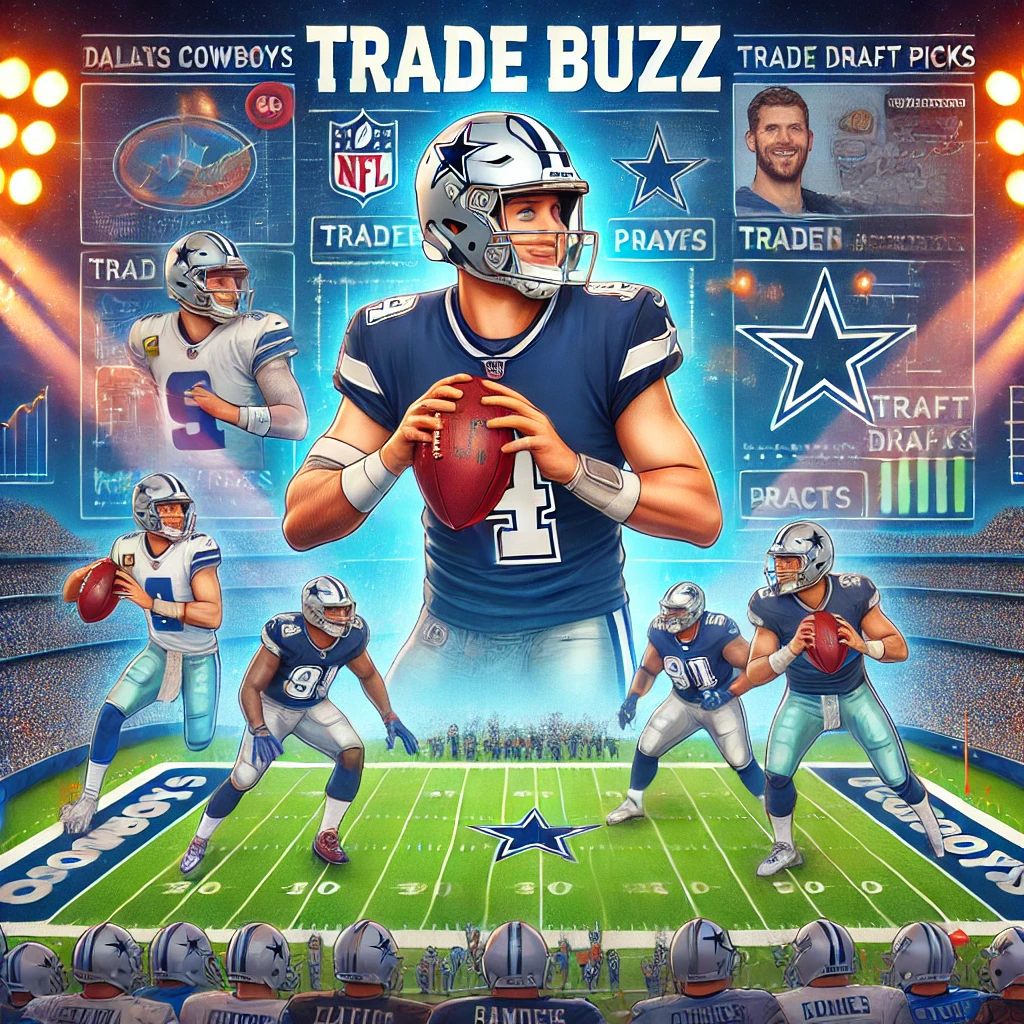McDonald’s Plan Refused on Healthy Eating Grounds
The golden arches of McDonald’s are a big name in fast food. But, with more people caring about nutrition and health, even big companies face challenges. In a UK area with high diabetes rates, people said no to a new McDonald’s. They chose healthy eating over fast food.
Over 3,000 people signed a petition against McDonald’s1. Social media and local forums buzzed with opposition. The City of York Council got over 300 objections1. People showed they cared about their health, especially for kids, for 166 days1.
When the news came out, people were relieved. They shared the news on WhatsApp1.
Let’s look at why McDonald’s plan was turned down. It’s a big moment in the fight for healthy eating.
Key Takeaways
- Understanding the public’s stance on balancing convenience with healthy eating in the face of rising chronic health conditions.
- Insights into the collective action and democratic process influencing the food industry.
- The potential impact of a new McDonald’s on local health concerns, viewed through the lens of public and educational institutional opposition.
- An overview of the significant statistics driving the refusal of McDonald’s plan, emphasizing the health profiles of diverse demographics.
- Implications for the future of fast food giants amid changing consumer trends towards nutrition and wellness.
The Backlash Against Fast Food and Its Influence on Nutrition
The growing awareness of fast food influence on nutrition has led to a big backlash. People are worried about the dietary concerns linked to fast food. This is because fast food often uses unhealthy ingredients that can harm consumer health.
Public Outcry on Dietary Concerns Linked to Fast Food
Ultra-processed foods (UPFs) are common in fast food and linked to health problems. Eating these foods can lead to obesity, heart disease, and even diabetes and cancer2. This has led to a demand for healthier, more transparent choices in fast food.
The Role of Fast Food Giants in Shaping Diet Trends
Fast food has shaped our diets towards convenience, leading to more processed foods. This has negatively impacted public health, with studies showing a link between UPFs and health issues2. Yet, some fast food chains are starting to offer healthier options in response to public pressure.
In the UK, over half of calories come from ultra-processed foods, showing a clear link to health risks2. Consumers are pushing for natural additives and fewer artificial ingredients. But, this change depends on the fast food industry’s willingness to adapt.
This backlash is sparking a needed conversation about consumer health. It highlights the need for fast food to offer healthier options without losing convenience.
McDonald’s Initiative and Why It Was Repudiated
The story of McDonald’s trying to change its image is key. It shows how fast food and healthy eating are connected. People and health groups had big hopes for better food choices.
Critiques of the McDonald’s Plan on Nutritional Grounds
Many said McDonald’s new plan didn’t meet healthy eating standards. Experts felt the food didn’t match up with what’s good for health. This made health groups doubt McDonald’s real intentions to improve.
Contrast Between McDonald’s Offerings and Healthy Eating Standards
Looking at McDonald’s food against healthy guidelines shows big differences. Their meals often have too much salt and fat. This shows how hard it is for fast food to change and meet health needs.
The failure of McDonald’s plan shows people want real change in fast food. They want food that’s actually better for them. This push for better food is making fast food places rethink their ways3.
McDonald’s Plan Refused on Healthy Eating Grounds
A proposed McDonald’s in York was recently turned down. This decision shows a big change in how people and local governments view fast food. Over 300 objections were made online, and more than 3,000 people signed a petition1.
Local teachers and leaders strongly opposed the plan. They worried about the health risks for kids. Head teachers Ruth Crabtree and Chris Nichols spoke out about these dangers1.
The fight against McDonald’s lasted almost six months. It showed the community’s commitment to health over profits. Councillor Conrad Whitcroft helped organize meetings to explain the health risks1.
McDonald’s hasn’t commented on the decision yet. This has made the community’s concerns even louder. It’s a big talk about corporate responsibility in the fast food world1.
Healthy Choices: Navigating Within the Fast Food Industry
In today’s world, people want healthier fast food options more than ever. They’re telling fast food places they want better choices. This is making fast food chains change their menus a lot.
Pressure On Fast Food Chains to Include Healthier Options
Fast food places are feeling the heat to offer healthier food. This change is not just because people want it. It’s also a smart move to keep up with the times.
Success Stories of Nutrient-Rich Options in Fast Food
Some fast food places have added healthier options to their menus. This big change shows a new way for fast food. They’re not just adding salads. They’re making food healthier by using better ingredients.
These places are now using more veggies, lean proteins, and whole grains. This makes their food good for you and tasty. The move to healthier menus is getting good feedback and more sales. It shows that offering healthy choices is good for both health and business.
The push for healthier fast food is a positive sign. It shows how important our food choices are for our health. As more fast food places offer healthier options, it could greatly improve public health and eating habits.
The Intersection of Corporate Responsibility and Public Health
The relationship between corporate responsibility and public health impact is getting more complex. Today’s market is driven by consumers. Companies, especially in fast food, must balance making money and keeping customers healthy. This balance makes us think deeply about how companies affect our health.
How Corporate Decisions Impact Consumer Health
Every choice a company makes can affect our health. For example, fast-food chains choosing ingredients for shelf life over nutrition might harm our health. But, offering healthier options can show they care about us. This can make people trust and like their brand more.
Corporations’ Ethical Obligations Towards Consumers’ Well-Being
Companies must see their duty to all people, not just shareholders. They should be open about what’s in their products and work to make them safer. They should also support healthy living.
To learn more about responsible business, check out this detailed analysis.
In summary, the focus on corporate responsibility shows we need smart choices for better public health impact. Leaders must think about money and ethics. This will build trust and keep their business strong in a world that values health and ethics.
Unpacking the Nutritional Content of McDonald’s Menu
In today’s world, people are more aware of their health. This has led to a closer look at what McDonald’s offers. We’ve analyzed the ingredients and their impact on health, giving insights for both consumers and health experts.
Analysis of McDonald’s Ingredients and Their Health Effects
McDonald’s menu has everything from burgers to salads. Each item has its own nutritional values. Beef patties and chicken are good sources of protein but have high saturated fats and sodium.
These can raise blood pressure and increase the risk of heart disease. But, McDonald’s also has healthier options like apple slices and salads. This shows their effort to cater to health-conscious customers.
The debate on McDonald’s menu is ongoing. It’s about finding the right balance between taste and health. Debates on dietary standards highlight McDonald’s ongoing efforts to meet these standards4.
Comparing McDonald’s Nutritional Values to Industry Standards
McDonald’s nutritional content is compared to industry standards. The chain has made progress in reducing calories and removing artificial additives. This aligns with the trend towards healthier dining.
| Menu Item | Calories | Sodium (mg) | Saturated Fat (g) |
|---|---|---|---|
| Big Mac | 550 | 950 | 10 |
| McChicken | 400 | 650 | 5 |
| Apple Slices | 15 | 0 | 0 |
| Caesar Salad | 350 | 730 | 7 |
This table shows McDonald’s wide range of options. It caters to both those who love fast food and those looking for healthier choices. Yet, finding a balance that meets nutritional standards without losing taste is a challenge.
As consumer needs change and standards get stricter, McDonald’s keeps adjusting. Finding the right mix of taste and nutrition is key to meeting customer health concerns.
In summary, looking at McDonald’s menu through the lens of nutrition and health is enlightening. It’s a continuous effort to balance what customers want with what’s good for them.
Government and Regulatory Stance on Fast Food and Health
The government stance on fast food regulation is changing. It shows a growing awareness of fast food’s impact on health. Now, regulatory bodies are working to improve the food quality available to everyone.
This new approach to public health policy is clear. It involves setting rules to limit bad ingredients and encourage healthier choices. The government is pushing the fast food industry to help improve public health.
- Review of Current Policies
- Feedback from Public Health Officials
- Upcoming Regulatory Changes
These efforts show the fast food regulation is serious. It’s not just about rules; it’s a strategic plan to tackle health problems linked to bad diets.
| Aspect | Present Stance | Proposed Changes |
|---|---|---|
| Sodium Levels | Regulated | Further Reduction |
| Trans Fats | Limited | Ban Proposed |
| Calorie Counts | Mandatory Display | Stricter Display Rules |
The government’s proactive steps are crucial. They help provide healthier options now and shape the fast food industry’s future. This shows a commitment to a healthier future for everyone.
Consumer Trends and Demand for Healthier Fast Food Options
In recent years, fast food has seen a big change. People now want healthier fast food options. This change is making fast food companies, like McDonald’s, update their menus.
Shifts in Consumer Preferences Towards Nutrition and Wellness
More people are aware of the importance of healthy eating. They look for food that fits their health goals. This has led to a big change in the fast food industry, with companies introducing menu innovations that are healthier.
Big companies have announced new healthier options. They know that what people want to eat is changing their business plans5.
Impact of Consumer Demands on McDonald’s Menu Innovations
Healthier options have changed not just what’s on the menu but how it’s made and served. McDonald’s has added more healthy choices to their menu. This is because more customers want to eat healthier.
These changes have made a big difference. More people are coming in and sales are going up. This shows how important it is for companies to listen to what customers want5.
Adding healthier items to the menu is a big step for McDonald’s. It shows they are serious about meeting customers’ health needs. This is not just a short-term change but a long-term strategy to keep customers coming back.
| Fast Food Chain | Healthy Menu Items Introduced | Consumer Response |
|---|---|---|
| McDonald’s | New salad blends, grilled chicken options | Positive, with increased sales during health campaigns5 |
| Krispy Kreme | Limited-time Ghostbusters-themed donuts | Highly popular, drawing crowds and media coverage6 |
The table shows how fast food chains are responding to health-focused consumer trends. It’s clear that as long as people keep wanting healthier fast food, companies like McDonald’s will keep adding more healthy choices. This not only meets customer demand but also pushes the trend forward, encouraging others to do the same.
Legal and Policy Implications of Responding to Dietary Concerns
The legal world for fast food companies is changing fast. This is because more people care about health and wellness.
The Role of Litigation in Fast Food Regulation
Fast food is facing more legal challenges because of diet concerns. Groups are suing to make food safer and more honest. This has made fast food chains change their menus to meet new health standards [7].
Impacts of Policy Changes on McDonald’s and Other Fast Food Chains
New health rules are making fast food change a lot. McDonald’s and others must update their daily operations. They now offer healthier choices and clear nutrition info [7].
Here’s how new laws are affecting fast food:
| Policy/Legislation | McDonald’s Response | Industry Impact |
|---|---|---|
| Nutritional Labeling Laws | Enhanced menu transparency | Widespread menu adjustments to meet dietary guidelines |
| Sugar Reduction Initiatives | Introduction of lower-sugar beverage options | Shift in beverage offerings across the industry |
The fast food world is always changing. McDonald’s and others must keep up with laws, lawsuits, and what customers want. We’ll see more healthy options and changes in the fast food world.
Conclusion
Looking at the fast food industry, we see McDonald’s trying to change with new nutrition standards. But, they face a lot of pushback. This shows how important it is for companies to care about health and follow the law.
People want to eat healthy, and companies need to listen. The choices we make at the table affect our health and the world around us. This is why government rules and what companies do matter a lot.
We’ve talked about how government actions affect fast food and health. We’ve also seen how big brands are trying to offer healthier options. But, as McDonald’s shows, making healthy food fast and tasty is really hard.
This talk is not just about food facts or counting calories. It’s about how big companies like McDonald’s can help us all eat better. Every time we choose what to eat, we’re helping shape a healthier future. It’s a team effort that needs smart choices from us and good policies from our leaders.
FAQ
Why was McDonald’s plan refused on healthy eating grounds?
McDonald’s plan was turned down because it didn’t meet healthy eating standards. It didn’t match public health goals for better nutrition.
What impact does fast food have on nutrition and dietary concerns?
Fast food often focuses on being quick and easy, not on being healthy. This leads to foods high in calories and low in nutrients. These foods can harm our health.
In what way are fast food giants like McDonald’s influential in shaping diet trends?
Big fast food chains like McDonald’s shape diet trends by offering cheap, easy, and well-advertised food. This can lead to unhealthy eating habits for many people.
What are the main critiques of McDonald’s initiative on nutritional grounds?
Critics say McDonald’s food doesn’t match healthy eating standards. They point out that many meals are too rich in calories, fats, sugars, and salt.
How are fast food chains like McDonald’s responding to the pressure to include healthier options?
To meet demand for healthier food, some fast food chains are adding better choices. They now offer salads, fruits, and meals with lean proteins and whole grains.
What are the ethical obligations of corporations like McDonald’s towards consumers’ well-being?
Companies like McDonald’s must put consumers’ health first. They should offer food that supports health, share clear nutrition info, and promote balanced diets in their ads.
How do McDonald’s ingredients and nutritional values compare to industry standards?
McDonald’s menu often falls short of healthy eating standards. Many items have too much unhealthy stuff and not enough good stuff, compared to what’s recommended.
What stance are government and regulatory bodies taking on fast food and health?
Governments and regulators are taking steps to improve fast food. They’re setting nutritional standards, making calorie counts public, and limiting ads to kids.
How are consumer preferences towards nutrition and wellness impacting the fast food industry?
People want healthier food, which is pushing fast food to offer better choices. Chains are now highlighting the health benefits of their meals.
What role does litigation play in fast food regulation?
Lawsuits are key in making fast food companies follow health rules. They hold companies accountable for false ads, not meeting health standards, and harming public health.
How do policy changes impact fast food chains regarding dietary concerns?
New policies can really change fast food. They force chains to make healthier food, share clear nutrition info, and meet new health standards.
Source Links
- ‘We’re over the moon’: campaigners delighted as new McDonald’s rejected
- Fast food fever: how ultra-processed meals are unhealthier than you think
- Biden-Harris must ensure access to HIV prevention drugs
- Newark lead pipe replacement contractor faked the work, billed city $10M
- McDonald’s customers are buying less of their most iconic menu item
- I Ate All Four Krispy Kreme ‘Ghostbusters’ Donuts
- Here are the Texas House races that Democrats and Republicans think they can flip









